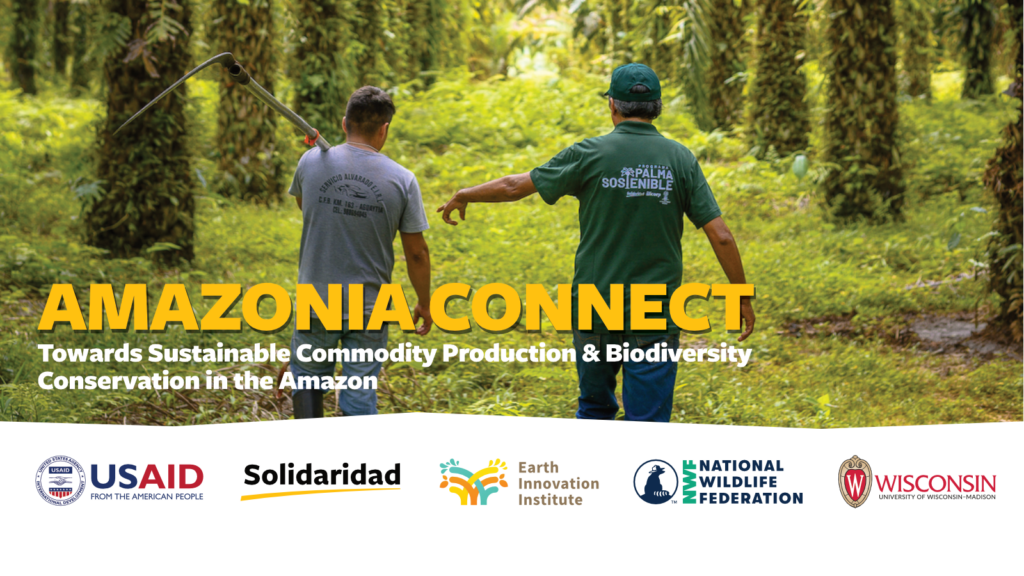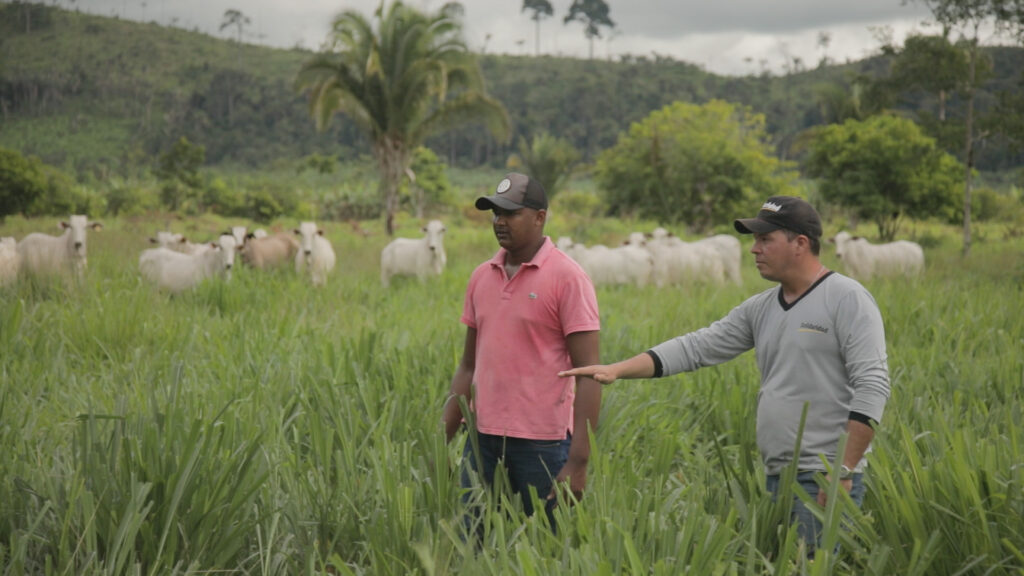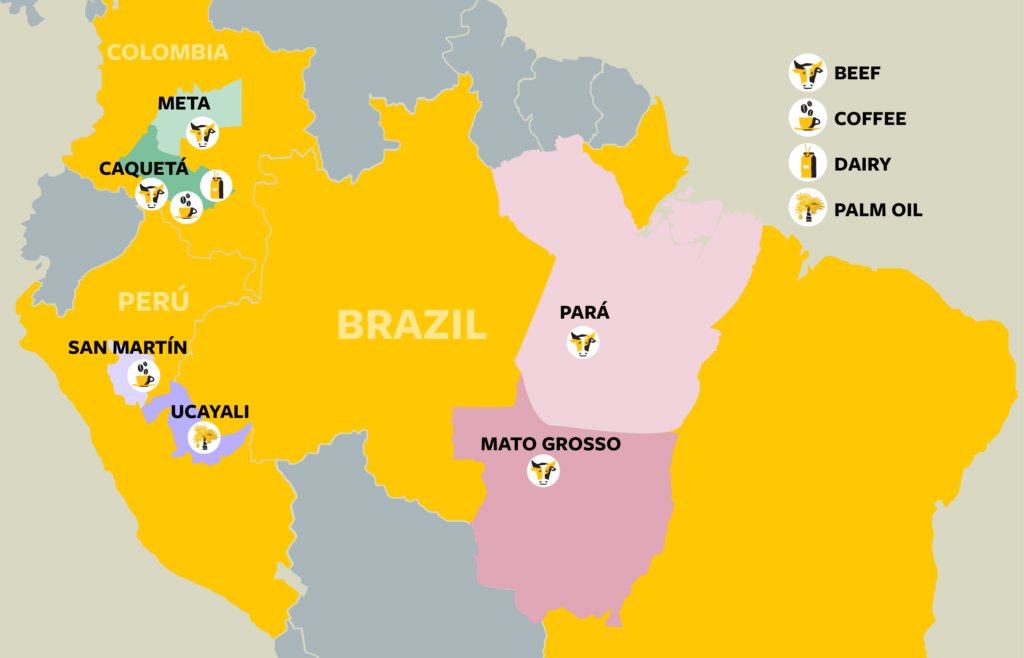
AT A GLANCE
- Implementing partners: USAID, Solidaridad, Earth Innovation Institute, National Wildlife Federation, University of Wisconsin – Madison
- Project Duration: 2022-2027
- Locations: Brazil (Pará and Mato Grosso), Colombia (Caquetá and Meta), and Peru (San Martín and Ucayali)
ABOUT AMAZONIA CONNECT
The Amazon rainforest is the world’s largest remaining tropical forest, providing incalculable environmental services. The Amazon shapes and stabilizes local and global weather patterns, and supplies freshwater to the surrounding regions. However, deforestation fueled by unsustainable land use and agriculture threatens to turn the region into a net carbon producer that could destabilize global weather patterns.
Amazonia Connect is a five-year activity (2022-2027) that seeks to accelerate the shift towards sustainable commodity production and biodiversity conservation, and reduce deforestation in regions that supply agricultural products to international and domestic markets. The work connects the efforts of the public and private sector to drive change in the sustainable production and consumption of agricultural commodities.

Our Approach
Amazonia Connect operates across four thematic areas to create an enabling environment that can reduce commodity-driven deforestation and habitat loss, support resilient livelihoods, and contribute to global efforts for more sustainable production.
Geographic Scope

Amazonia Connect is being implemented in the Amazon biome in regions across Brazil, Colombia and Peru where expanding agriculture and livestock production is leading to rapid deforestation. These three countries comprise 80 percent of the Amazon land area.
Our work is focused on these commodities and regions:
- Brazil: beef in Pará and Mato Grosso
- Colombia: beef, dairy and coffee in Caquetá, and beef in Meta
- Peru: coffee in San Martín, and palm oil in Ucayali

